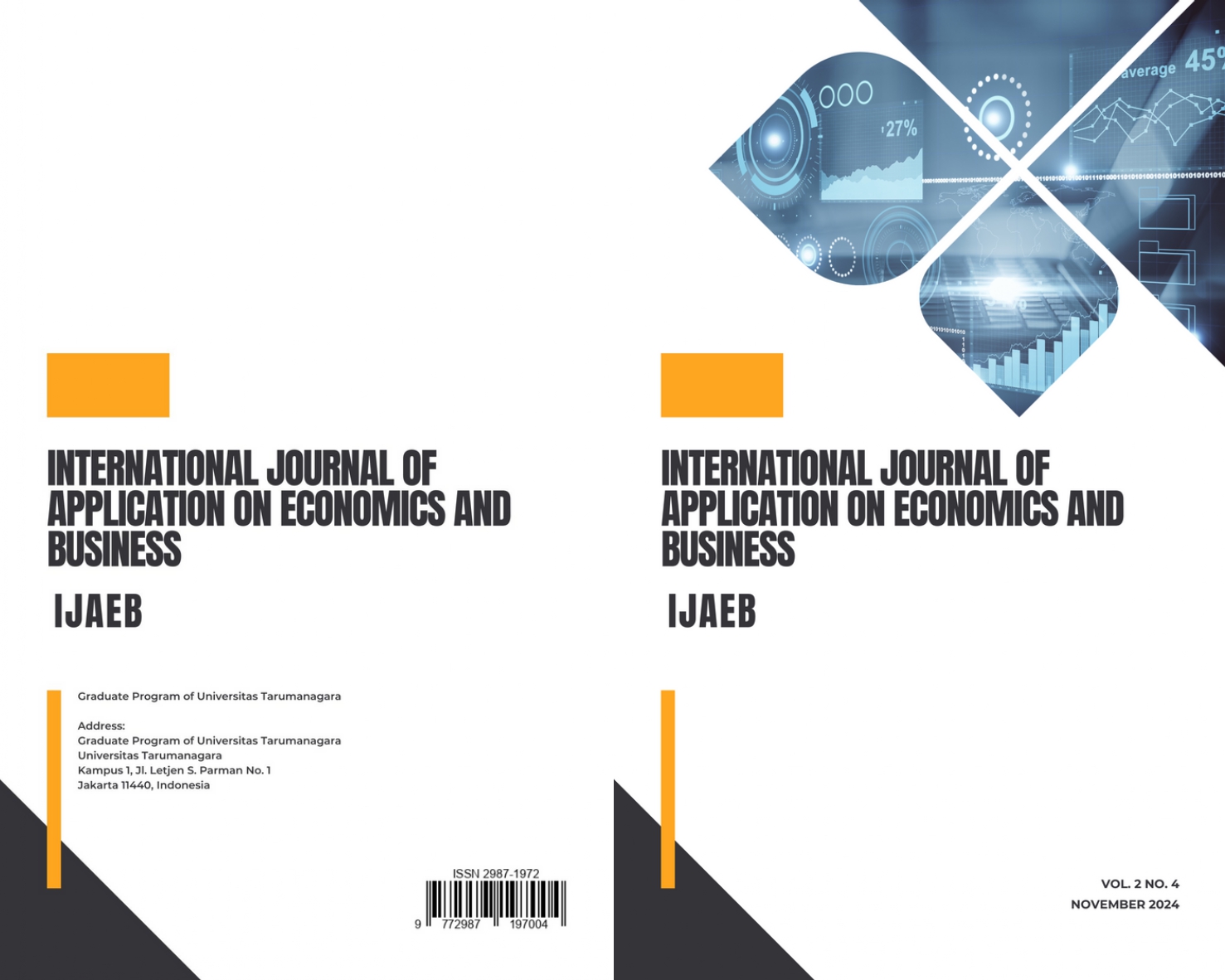GREEN BANKING PERFORMACE ANALYSIS: A COMPREHENSIVE REVIEW OF CIMB NIAGA’S ENVIRONMENTAL INITIATIVES
Main Article Content
Abstract
Indonesia is known for being one of the countries that are at high risk of experiencing bad things like natural disasters because of climate change. One of the Indonesia government's initiatives in addressing this issue is to participate in the Paris Agreement, which implies the implementation of a green accounting system. The Implementing green accounting offers many benefits to organizations. At the same time, company management strongly embraces the idea of sustainability in their operations and chooses to disclose the social and economic impacts of their activities. In various sectors, including the banking industry, there is a growing emphasis on implementing green practices within their operations as part of an effort to enhance business ethics, called green banking. This research aims to analyze the development of CIMB Niaga's success in environmental management over the last six years. This study concentrates on developing sustainability implementation guidelines for financial institutions to implement green banking. The research methodology used in this research is quantitative, with two approaches, namely a qualitative perspective or paradigm. The data used consists of secondary data obtained from continuous reporting for the period 2016 to 2022. The results of this research are CIMB Niaga's implementation of green banking policies has been quite successful. These results provide recommendations for CIMB Niaga management to continue to improve the company's environmental performance. Improving the company's environmental performance shows management's commitment to carrying out CIMB Niaga activities based on the concept of sustainability.
Article Details
Section

This work is licensed under a Creative Commons Attribution-NonCommercial-ShareAlike 4.0 International License.
This journal provides immediate open access to its content on the principle that making research freely available to the public supports a greater global exchange of knowledge.
IJAEB by Graduate Program of Universitas Tarumanagara is licensed under a Creative Commons Attribution-NonCommercial-ShareAlike 4.0 International License.. Permissions beyond the scope of this license may be available at https://journal.untar.ac.id/index.php/ijaeb
References
Aslam, W., & Jawaid, S. T. Let’s Go Green: Achieving Consumer-Related Performance Outcomes in Banks, International Journal of Ethics and Systems, 2023, 2514-9369, doi: 10.1108/IJOES-01-2023-0019
Bukhari, S. A. A., Hashim, F., & Amran, A. (2020). Green Banking: A Road Map for Adoption. International Journal of Ethics and Systems, 36(3), 371-385.
Chen, Z.G., Chen, Y., Huang, L.N. et al. (2018) Analysis of the Standardization Management of Infant and Child Products. China Standardization, 21, 89-98.
Islam, M. J., Roy, S. K., Miah, M., & Das, S. K. (2020). A review on corporate environmental reporting (CER): An emerging issue in the corporate world. Canadian Journal of Business and Information Studies, 2(3), 45–53.
Mir, A. A., & Bhat, A. A. (2022). Green Banking and Sustainability – A Review. Arab Gulf Journal of Scientific Research, 40(3), 247-263.
N, Biswas. Sustainable Green Banking Approach: The Need of The Hour. Business Spectrum, 2011, 1(1), 32-38.
Peraturan Otoritas Jasa Keuangan No. 51/PJOK.03/2017 Tentang Penerapan Keuangan Berkelanjutan Bagi Lembaga Jasa Keuangan, Emiten dan Perusahaan Publik.
Rounaghi, M. M. Economic Analysis of Using Green Accounting and Environmental Accounting to Identify Environmental Costs and Sustainability Indicators. (2019). International Journal of Ethics and Systems, 35(4), 504-512, doi: 10.1108/IJOES-03-2019-0056
Schumacher, K., Chenet, H., & Volz, U. (2020). Sustainable finance in Japan. Journal of Sustainable Finance and Investment, 10(2), 213–246. https://doi.org/10.1080/20430795.2020.1735219
Shuvro, R. A., Saha, S., & Alam, M. J. (2020). Measuring the level of job satisfaction of the employees of Grameen Bank: An empirical study. Canadian Journal of Business and Information Studies, 2(1), 1–11.
Undang-Undang Republik Indonesia Nomor 6 Tahun 1994 tentang Pengesahan United Nations Framework Convention on Climate Change (Konvensi Kerangka Kerja Perserikatan Bangsa-Bangsa tentang Perubahan Iklim).
Ullmann, A.A. (1976), “The corporate environmental accounting system: a management tool for fighting environmental degradation”, Accounting, Organizations and Society, Vol. 1 No. 1, pp. 71-79
Vincentiis, P. Do International Investors care about ESG News?. Qualitative Research in Financial Markets, Emerald Group Publishing Limited, 15(4), 572-588.
World Bank Group, & Asian Development Bank. (2021). Climate risk country profile: Indonesia. World Bank Publications. www.worldbank.org
Zioło, M., Bak, I., Cheba, K., Spoz, A., & Niedzielski, P. (2021). Sustainable financial systems toward sustainability in finance. Institutional and managerial approach. Procedia Computer Science, 192, 4237–4248. https://doi.org/10.1016/j.procs.2021.09.200

